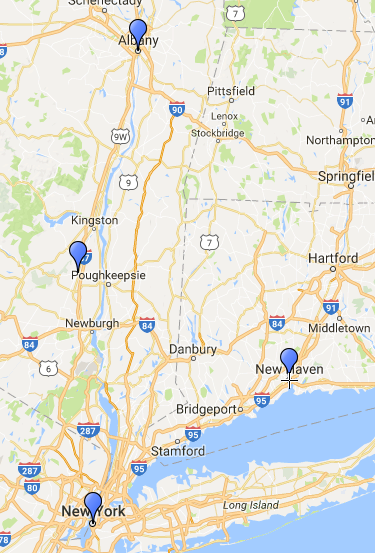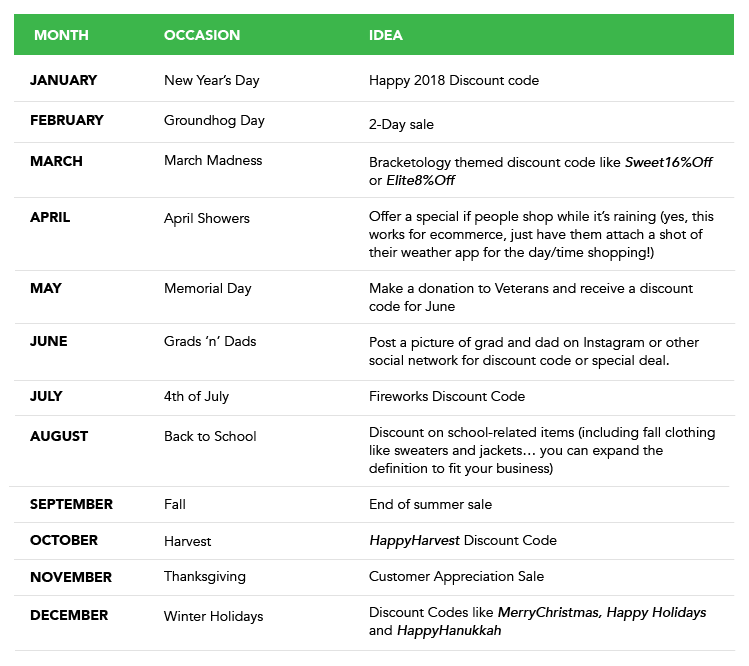Common Pay Per Click Campaign Mistakes To Avoid

Let’s face it: we rarely learn by doing things right. We learn from our mistakes and the mistakes others tell us about. To save you from making common pay per click campaign mistakes we’re going to use this post to go through five of them so that you save yourself some time and money. Need the basics on Cost Per Click? Check out this post with CPC basics. If you’ve got a mistake we missed here, we’d love to hear about it. Hit us up on Twitter with #ppcmistakes and we’ll share the knowledge!
Don’t Make These Common Pay Per Click Campaign Mistakes
Here are five mistakes many people make when setting up their AdWords or other PPC advertising campaigns. There’s more than five — be sure to let us know the ones you’ve made.
Skipping Negative Keywords
What you leave out is often just as important as what you put in. This is especially true when it comes to setting up ad campaigns online. Be sure to include negative keywords, the ones you do NOT want to rank for, when setting up your campaign.
Example: You’re an IT company bidding on “computer support services.” Google showed the ads to users searching for child support services. Sure, you got clicks but not from potential leads. Taking time to think about keywords you don’t want traffic for and adding them to your negative keywords is an important step to saving money.
Strategy: Conduct keyword searches on your anticipated search terms and see what weird stuff comes up. Toss it into the list of negative keywords.
Forgetting the Geo-targeting Option
Google and other search engines take a peek at users’ IP addresses when they search. This allows search engines to post the most relevant searches. Ads are connected to searches meaning is something else you don’t want to leave off of your campaign. Be sure to set the area(s) where you want your ad seen.
Example: A local craft beer and fried chicken restaurant in New Paltz, NY does not geo-target ads. By default, their ads are shown to the entire US. Using a keyword like “best beer selection” or “fried chicken” is going to get them a lot of clicks from people who may never visit. That gets expensive adds up.
What about a designer of haute couture? Should he only geo-target based on mileage? It makes sense, sometimes, to consider your customer base. Instead, think of where these clients are likely to live and target those areas.
Strategy: This restaurant should set their ads to run within a mileage radius from the location. Talk to regulars about where they live. Think outside of the box for this one. For example, someone visiting New York City for the week might take a trip to New Paltz, NY. It might make sense to budget a little for NYC targeting along with local targeting. Consider, too, that craft beer is always popular and adding big cities in a few hours’ radius could increase exposure as a place for beer lovers to check out.

Our haute couture designer should target zip codes and metro areas that are fashion forward and have the money to spend: New York City, The Hamptons, LA, Vegas, South Beach. A little market research goes a long way when it comes to PPC.
Using Your Phone Number
You get limited space and characters for your ad. Many people are still in the mindset of sharing their phone number. While that made sense twelve years ago, people are far less likely to pick up their phones and call now. Further, you can now include an option to call the business from the extended area of the ad. This click to call option allows users to simply click on your add and call you from mobile rather than have to dial in. This is especially helpful considering the amount of search that happens on mobile. Use that and save space for good keyword variations.
Example: You offer web development services and have the catchy phone number, 1-800-Develop. That’s 13 characters lost to a phone number that won’t get dialed.
Strategy: Extend your ad to include the click to call option. Use that extra real estate to use variation of your keyword. Think about how people might search. Someone with development knowledge is likely to search “web dev services” while someone less familiar, maybe on their first venture, is more likely to type “web development services.”
Forgetting That There’s A Reason For The Season
Many people set their campaigns and forget about them. With everything else your business has going on it’s easy to approach PPC as a one time deal only adjusting when looking at the costs and gains. This is a common pay per click campaign mistake to avoid.
Example: A florist in Missoula, MT sets up a geo-targeted ad and simply checks how it’s performing and changes the budget and keywords based on the number of clicks.
Strategy: Instead of planning one size fits all ads, when you sit down to write have a calendar that hits seasonal highs. We suggest a monthly or seasonal method.

Dropping The Ball On The Landing Page
A very common error in CPC campaigns is not having a seamless transition from the ad to the connected landing page. The ad and what you promised is what made them click. Remind them of that the instant they hit your page or they will leave if it’s not immediately apparent. Otherwise it looks like clickbait and you will lose credibility.
Example: Your eCommerce site selling custom skateboards includes a reference to a 50% discount. When Joe clicks on the ad and gets to your site it’s just the homepage with no reference to the sale. Joe clicks away — he can afford you at 50% off but not full price.
Strategy: Create a landing page that has a graphic about the 50% off deal. Putting this on your homepage is also a great idea in the event someone remembers seeing the ad but didn’t click on it. That way when they visit your site later, they’ll see it.
Trust Digital Firefly Marketing With Your PPC Needs
We know about these common problems with PPC ads because we’ve seen them made. Maybe we even made a few ourselves before we became experts. Learn from our mistakes and those we’ve seen and don’t make them yourself. When you are ready to kick your PPC up a notch, contact us for help from our PPC Marketing experts. And, don’t forget, we want to hear your advice. Share on Twitter the common pay per click campaign mistakes you wish you’d known about. Use #ppcmistakes.
